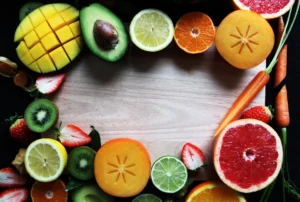
Why is a strong and efficient immune system so important?

Because our life depends on its performance.
The different types of cells that make up this system are like a kind of soldiers that defend us against various types of external aggressors and have the ability to recognize and neutralize them. These cells respond not only to pathogens (viruses, bacteria, fungi, etc.) but also to defective cells, such as cancer cells. This is what ideally happens, when our immune system works well, its role is performed efficiently and what in some way could be a threat to our health ends up being resolved.
The problem is when our immune system is disturbed and no longer has the ability to function efficiently. Unfortunately, we live in times where there is no shortage of factors that in some way, some more, others less, disrupt the normal functioning of our immune system. And it is not difficult to name them: environmental pollutants, food additives contained in processed foods, pesticides used in the cultivation and production of fruits and vegetables, chemical substances that are part of the composition of cleaning, hygiene and cosmetic products, prolonged use of drugs, emotional and psychological stress, etc.
It would be difficult to name someone who nowadays does not live subject to several of these factors.
Naturopathy is based on the premise that when we remove what disturbs the functioning of our body, and when we treat it by offering it what it needs to function correctly, it achieves, on its own even, reestablish the balance. The intelligence that is natural to the human organism relies on various and complex mechanisms that always aim to seek balance.
The vision of naturopathy attributes extreme importance to the immune system for our health, as its good performance is decisive in the prevention and development of so many diseases that disrupt our quality of life.
There are, therefore, several aspects that, from the point of view of naturopathy, we must take into account if we want to maintain a strong and healthy immune system.
Food
The health and performance of each of our cells directly depends on the nutrients we provide to our body through the food we eat. I would say that one of the basic rules when it comes to food would be to abolish or avoid processed products that are found on supermarket shelves, packaged and labeled with a very long expiration date. It is difficult for these products not to contain additives in their composition, substances that do nothing for our health.
In addition, these products often contain generous amounts of sugar, deceiving our body with an intake of empty calories, that is, with a source of energy that does not bring with it nutrients essential for good health.
A good diet should start with a preference for fresh foods, natural foods, foods that come from the earth or trees directly or almost directly into your kitchen.
Broccoli, cauliflower, Brussels sprouts, cabbage, red cabbage, turnips, radishes, among others, are plant elements from the Brassicaceae family that have nutritional characteristics that give them excellent stimulating properties for the immune system.
The same can be said about onions, garlic and leeks should also always be included in the diet when the aim is to strengthen the immune system.
Fruits also generally provide us with a good amount of vitamins and minerals that are essential for the good performance of the immune system.
I highlight: strawberries, blueberries, blackberries, raspberries, cherries, cranberries and pomegranates, all of these fruits have a high content of anti-oxidant vitamins, A, C and E. Furthermore, they are also rich in minerals such as calcium, magnesium and potassium. Papaya and pineapple are also two fruits with a powerful anti-inflammatory capacity as they contain enzymes, papain and bromelain respectively, which give them this property.
Of the citrus fruits, known for their generous amounts of vitamin C, I highlight lemon because it has a low glycemic index and is rich in calcium, magnesium and potassium. Kiwi is also an excellent source of vitamin C (more than oranges).
Probiotic foods are also very important. These are fermented foods containing bacteria that have a beneficial action on our digestive tract, contributing to strengthening our immune system. There are several probiotic foods, but I highlight miso (a soy by-product that you can use to make a comforting broth), kombucha (a drink prepared from a culture of beneficial bacteria) and sauerkraut (prepared from cabbage). .
It is very interesting to include these foods in your diet, however, probiotics can also be consumed in capsules, and you should be advised by a professional on the probiotic that best suits your case.
Due to the fact that the foods we consume today lack the desirable nutritional density they had a few decades ago, and also to the fact that the environment we live in today is challenging to the point of increasing the requirement for certain nutrients to In order for our body, and specifically our immune system, to function efficiently, it is often necessary to resort to supplementation of certain nutrients essential to this good performance.
To strengthen the immune system, some important vitamins are used in naturopathy, as well as some minerals, medicinal plants and other substances produced by nature, such as propolis.

I highlight what I consider most important:
Vitamin C:
Vitamin C has an immunomodulatory action and improves the reaction of immune system cells. It increases the oxidative and phagocytosis capacity of neutrophils and stimulates the function and proliferation of lymphocytes, thus helping to fight any infection.
Vitamin D:
Like vitamin C, vitamin D also has an important immunomodulatory role in our body. It plays a fundamental role in mobilizing immune system cells to combat any infectious disease.
In Portugal, only 3.6% of the population has vitamin D levels considered normal (above 30 nanograms per milliliter). Food (oily fish, eggs, mushrooms, etc.) does not provide us with more than 10% of the amount of vitamin D that our body needs. The other 90% comes from sun exposure (UVB rays). In most cases, it is important to take vitamin D supplementation as a complementary measure to strengthen the immune system.
Zinc and selenium:
Both contribute to the normal functioning of the immune system.
Echinacea:
It is a medicinal plant with a well-known action on the immune system, especially with regard to preventing and combating respiratory infections. It can be used in capsules (dry extract), in supplements in liquid form or from the dried plant itself to make infusions.
Ginger:
Several components of ginger give it anti-inflammatory, antifungal, antibacterial and antioxidant properties. It can be consumed fresh and used as a condiment in cooking, as sautéed vegetables or in the oven, in juices and smoothies or in infusions.
️Propolis:
Propolis is a natural substance collected by bees from flowers and trees. Its composition includes tree resin, essential oils, waxes and bioflavonoids. It has natural antiseptic properties and is recommended in cases of infection and/or inflammation such as: colds and flu, pharyngitis, tonsillitis, laryngitis, cough and bronchitis.
If you liked this article, share it with anyone who could benefit from this information or leave us a message.
Author:
Diana Patrício, Naturopath and Homeopath






